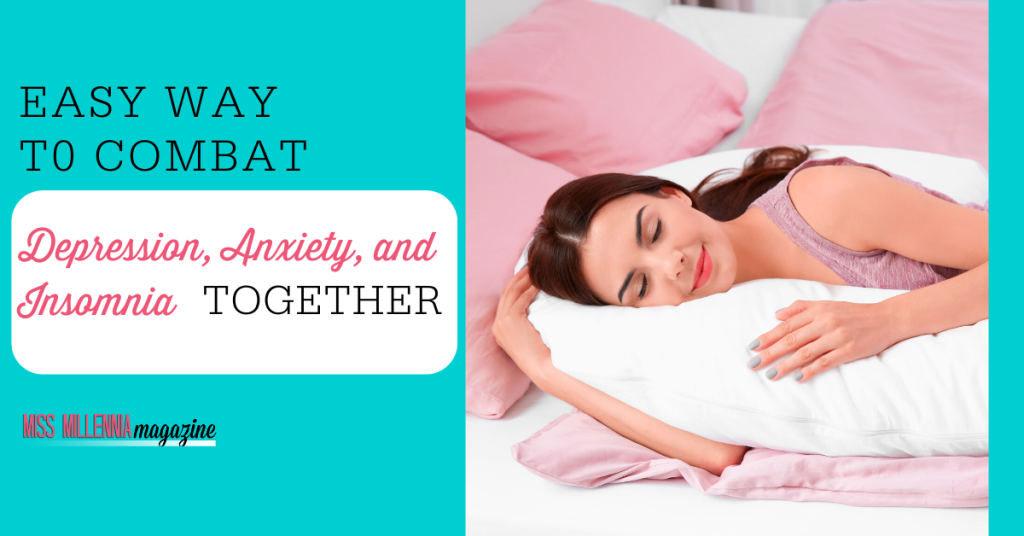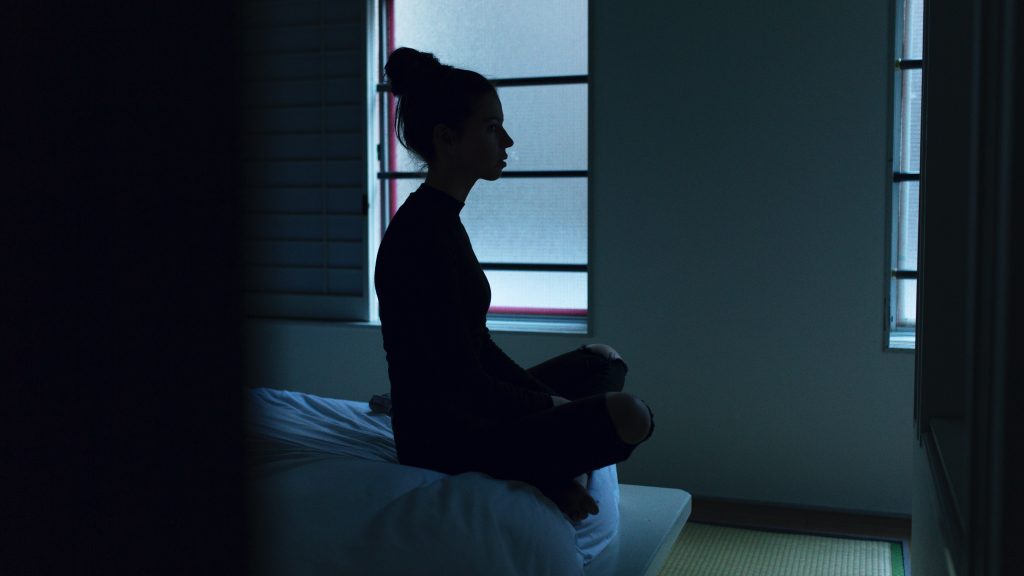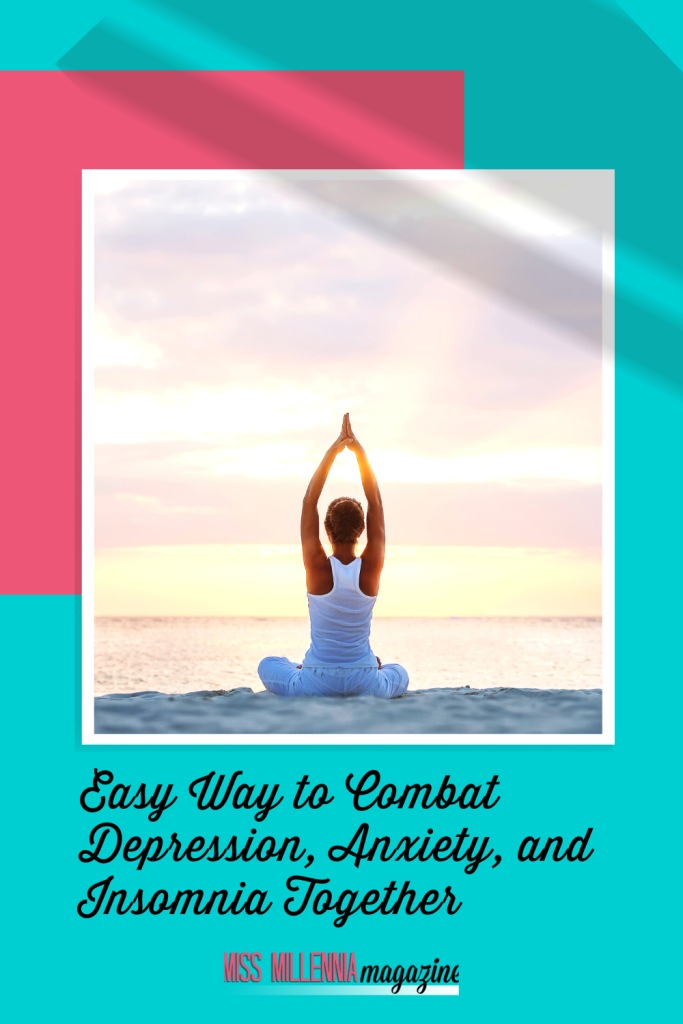Easy Way to Combat Depression, Anxiety, and Insomnia Together

Going to bed feeling anxious, whether worried about work or personal life, is unhealthy. Lying in bed without any distractions gives our minds the time to think over and over our worries. Unfortunately, this may build anxiety, and your body’s fight-or-flight response is activated.
It is known as mental hyperarousal. This heightened sense of unease is our body’s way of protecting us in threatening situations. In addition, it causes physical changes, including increased heart rate and the release of adrenaline, to help us be stronger or run faster. For example, suppose your anxiety triggers your fight-or-flight response while in bed. These changes can overstimulate the body, making it impossible to drop off to sleep.
Unfortunately, the link between anxiety and insomnia may act like a vicious circle. You may struggle to sleep the following evening again, resulting in the cycle starting all over again.
Suppose you’ve reached the stage where your anxiety leads to insomnia, which leads to more stress. In that case, it’s time to stop the cycle and achieve positive mental well-being again. Feel free to consult ibuyalprazolam to combat your anxiety or sleep issues.
Understanding the Connection between Anxiety, Depression, and Sleep
Depression, anxiety, and sleep issues have a bidirectional relationship. It means that poor sleep may contribute to causing depression, and having depression makes a person more prone to experience sleep difficulties. This complex relationship makes it challenging to know which came first, sleep issues or depression.

Which comes first? Poor sleep may cause difficulties regulating emotions that, in turn, may leave a person more prone to depression in the future, months, or even years from now. Depression is linked with sleep issues, like shortening the restorative slow-wave sleep you get each night.
Suppose you have depression, daily stresses, financial losses, an argument with your partner, or a jam-packed evening commute. In that case, it may lead to more nighttime wake-ups and trouble getting back to sleep than those without depression may experience. Understanding the relationship between depression and insomnia may help you identify risks early, get the proper help, and recover more effectively if you are experiencing both. As a result, you will feel healthy, well-rested, and able to enjoy life again.
Managing Anxiety, Depression, and Insomnia
Try to relax
If you are lying awake at night with your heart pounding, your fight-or-flight response is likely triggered. Try to get the body back into a relaxed, resting state in these situations. It sounds effortless, but just inhaling slowly and deeply can help massively. For example, take a long deep breath through your nose, and feel your whole abdomen rise as you do so before breathing slowly through the mouth. Doing this for a few minutes might help you to feel calmer and more relaxed.
You can also consciously relax your muscles. Focus on different body parts, working from the top of your head to your toes, envisaging your muscles becoming relaxed and heavy. Focus on positive thoughts or images. For example, imagine walking along a warm sandy beach or sitting in a peaceful forest clearing – anything that will help you feel relaxed.
Get up and do something.
Sometimes, a helpful way to lessen your anxiety is to focus on something completely different. For example, if your worries are roaming around in your mind in the middle of the night, getting up and doing something for 5-10 minutes may help you to break away from your anxiety.
Try doing something relaxing and not overly stimulating. For example, you may listen to soothing music, do simple yoga stretches, or read a chapter from your favorite book. Then, when you go back to bed, your mind will have a chance to think more positively, helping you switch off and drift to sleep. If you do get up, avoid anything too stimulating, like playing on the phone or watching TV, as this may make you more anxious and make it tougher to get to sleep.
Give yourself enough time for sleep.
The average adult needs 8-9 hours of sleep per night. Therefore, it would help to allow yourself to get this amount of sleep. Try to go to bed at least 8 hours before getting up. If you go to bed late, you may constantly check the clock throughout the night and worry about getting enough sleep. These negative thought processes add to your anxiety, making you more likely to struggle with insomnia.

Be organized and prepare for the following day.
If you go to bed feeling anxious about the coming day, prepare for it the evening before. It will help to lessen worries as you know everything is in hand for the following day. In addition, you can make a to-do list to understand you have everything covered before you go to bed and have your clothes ironed and ready for the morning.
Practice good sleep hygiene.
You can do enormous things to help you get a better night’s sleep. The first is to keep a consistent sleep routine. For instance, try going to bed and waking up at the same time daily, even at weekends. It helps the body get into a habit and makes it much more likely that you will fall asleep each night.
You must also try to reduce your intake of caffeine, sugar, and alcohol late at night. These kinds of stuff make you feel awake and jittery, fueling your anxiety. Also, try limiting the fluid you drink before bed so you don’t need the toilet at night.
Also, avoid using electronic devices, like your mobile or tablet, within 30-60 minutes of bedtime. Electronic devices give off a bright light which can be overly stimulating and stop you from getting to sleep.
Conclusion
Sleep problems may exacerbate depression, leading to a negative cycle between depression and sleep that might be challenging to break. Poor sleep patterns may provoke depression in some people. Understanding the complex association between sleep and depression improves sleep quality and manages depression.
